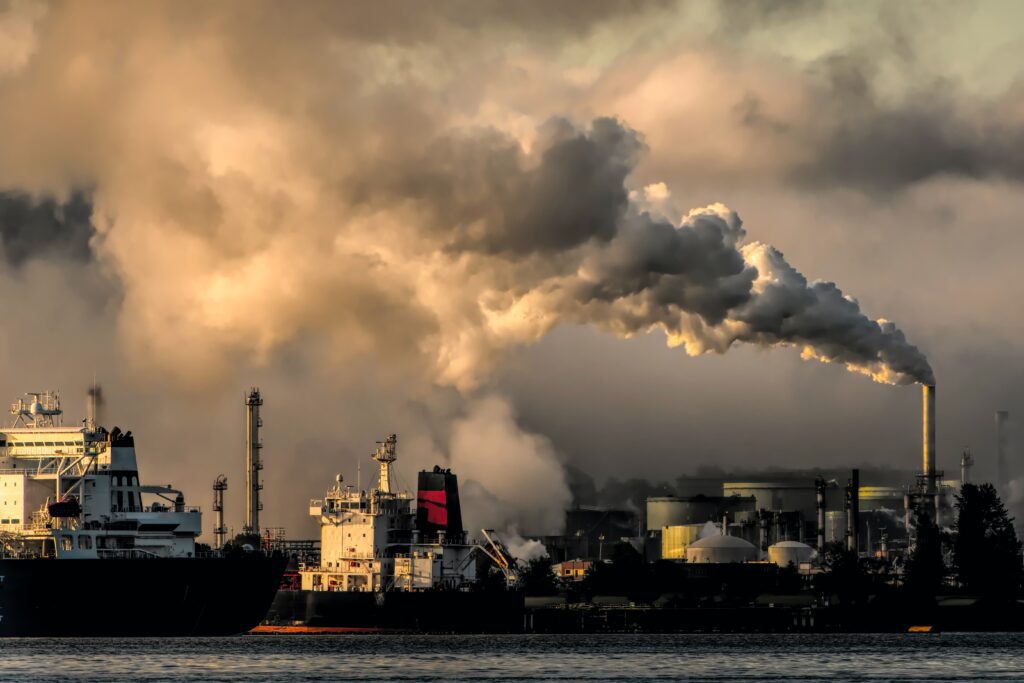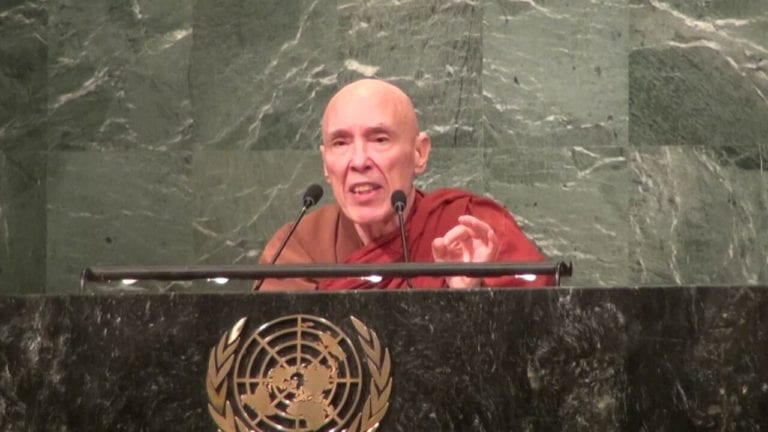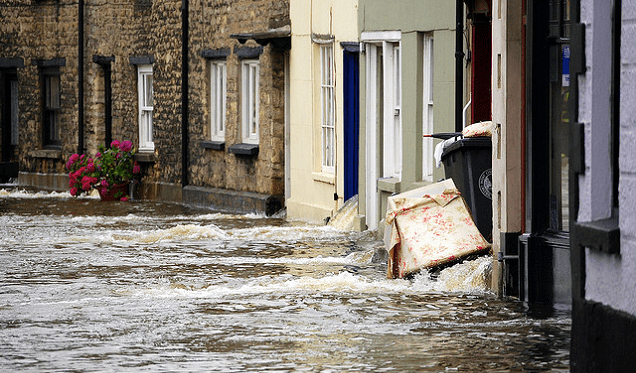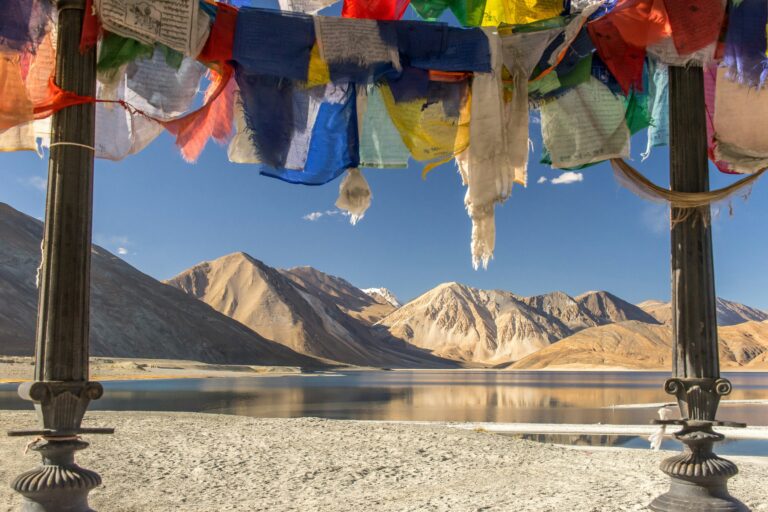Growth rules the world. Presidents succeed or fail, companies soar and crash, and countries are invited to the table on the basis of their growth percentage.
Economic growth by the common definition is that GDP — gross domestic product — keeps getting bigger over time. GDP is an idea, and it was created to measure exports, consumption, investments, profits, wages — the total value of goods and services within a country’s borders. The current economic order uses GDP as a marker of national performance, and its growth is synonymous with a country’s financial wealth, worth, and power. For that reason, policymakers, political pundits, and economists love to propose, plan, and debate the best path for economic growth.
Nothing on Earth or in our known universe grows and lives forever. The economy and endless growth are an imagined machine-like system, unbounded by the laws that govern the rest of us. I imagine the growth-based economy beet-faced, with clenched, pounding fists, demanding more, faster, and now. A bottomless pit for a stomach, it eats with an insatiable appetite anything and everything within reach. This machine has grown so massive and powerful, I’m uncertain if it belongs to us, or if we belong to it. The machine eats and grows for the sake of its growth, with little consideration to the moral, social, or ecological costs. Though the machine and its rules are imaginary, the consequences are not: Land, resources, and life are consumed, extreme wealth and poverty, pollution, mass extinction, human death and displacement, and climate crisis are produced.
I imagine the growth-based economy beet-faced, with clenched, pounding fists, demanding more, faster, and now. A bottomless pit for a stomach, it eats with an insatiable appetite anything and everything within reach.
I write of growth like a story because it is: Humans imagined the growth-based economy and continue to tell a tale of its value and functions, achievements and superiority — economic growth like a God who endowed us with the power of the market, the tools of capitalism, and helped us build the modern world. Perhaps economic growth once served a rightful purpose: expanded trade networks, novel inventions, more efficient innovations, a raised standard for the quality of human life. Maybe — it depends who you ask and which story is told. Slavery and colonization are chapters in the story of economic growth too.
Just like a story tells us about the past, it also tells us of our future. We become who our story tells us we will be. In this moment of climate crisis, we are capable of great change if we imagine a story that allows us to fulfill the most tenacious and adaptive of our being and embrace transformed, sustainable systems. Economic growth was ingrained into the collective imagination, continues to be maintained with force, and the story told as the best and only logic of the global order. Economic growth is a key driver of the climate crisis, and for the sake of all life on this planet and our continuing story, we must free ourselves from this story.
Why must we free ourselves from the logic of growth?
The Biden Administration just celebrated the anniversary of the Inflation Reduction Act. The IRA was a historic climate bill, the first of its kind: $369 billion for investments and tax credits designed to accelerate and incentivize the clean energy transition. It’s a good start at growing the good, but it’s far from perfect. The U.S. committed to 50% emissions reduction by 2030, the bare minimum contribution the country can make to averting 1.5 degrees Celsius of planetary warming.

The Department of Energy forecasts a 35-41% drop in emissions by 2030. We’ll hit their forecast if all goes fine and well, but the construction of clean-energy projects is tangled up in permitting delays, and those numbers rely on carbon capture technology still not available at scale. The IRA and the Biden Administration also continue to concede to fossil fuel interests and grow the bad: a fast-tracked Mountain Valley gas pipeline, an increase in natural gas projects in the Gulf South, and opened oil drilling in Alaska.
I worked in the years leading up to the IRA with the Sunrise Movement, a youth climate advocacy group. We played a key role in the effort to popularize transformative climate policies like the Green New Deal and elect Democrats to deliver the goods at the speed and scale that the science demands. The IRA is something, but it’s not anywhere close to enough. It’s green industrial policy — it only fits within and is guided by the logic of growth. If the United States intends to keep its climate commitments, stave off the worst of the crisis, we must think, imagine, and act beyond the logic of growth.
Why? First, We measure growth with GDP, but it makes no accounting or diminishes the value of care and reproductive work, public goods, and natural resources. Simon Kuznets, a Nobel winner and early advocate of GDP, cautioned of its limitations: “The welfare of a nation can scarcely be inferred from a measure of national income.” Former French President Nicolas Sarkozy has written that GDP created a gulf between economic experts and people “whose experience of life is completely out of sync with the story told about the data.“
There is no clear relationship between income equality and GDP growth. When a country is faced with the inevitable choice of growing its GDP or social and environmental well-being, the rules of our economy demand that GDP gets priority. We’re ensnared by our own silly rules, entangled in our precarious imaginations, so why not adopt another measure?
Second, Earth has real planetary boundaries. Right now, we’ve eaten into our limits of seven of eight of those safe and just system boundaries. These boundaries include limits to climate change, air pollution, phosphorus and nitrogen water pollution, groundwater, surface water, the unbuilt natural and human-built environments.
Influential economists, like Paul Krugman, still believe “There is no necessary relationship between economic growth and the burden we place on the environment.” I’m not sure which environment he’s privy to and speaks of, but it cannot be the same as mine. For growth, we serve up entire forests on plastic plates, slice up mountains for minerals on the side, ladle oceans and rivers into Styrofoam bowls, siphon oil and gas and serve it with a bendy straw. Growth drives encroachment into wild places, wastes and misuses resources, and spews greenhouse gas emissions. For growth we sacrifice land and life, human and all. Economic growth eats into our limits.
Third, for the sake of mass extinction, preserving the threads still left in the ecological web, natural carbon capture and storage, wonder and beauty, future generations, moral responsibility, spiritual imperative — whatever your favorite why, all that remains of plants, animals, water and land must be protected and preserved. The growth economy will devour it all if given the chance. However, there is a global system in urgent need of transformation, and it will take a massive, coordinated effort throughout all sectors.
Without the pressure of growth, governments and social institutions can pivot to their promise: investments in public goods and services like health care, housing, and education for all its people.
Nearly every country in the world desperately needs to phase out fossil fuels and build out their clean energy, climate adaptation and mitigation systems, structures, and technology. Deep decarbonization requires resources, and these resources must be shared equitably between countries. The effort goes beyond just switching a system from fossil fuels to clean energy; 2 billion people around the world are in urgent need of clean water and 3.6 billion are without access to essential services like sanitation. The Global South needs to grow in the realm of public goods, essential services, and other sectors that are crucial to a good, quality livelihood. If resources are finite and we aim to stay within bounds, resource use must be discerned between essential, meaningful, and superfluous. Growth must be thoughtful, exercise magnanimity in some sectors, and restraint in others.
Fourth, the Hamburg Climate Futures Outlook released earlier this year cites corporate responses and consumer behavior as two stubborn and carbon-intensive obstacles to the emissions cuts needed for deep decarbonization. Profit is the bottom line of any successful corporation, and profit does not discriminate between good and bad growth. Corporate investors are motivated by short-term, immediate gains, not the long-term health and well-being of people and the planet. Corporations are more beholden to the logic of growth than any other entity, and so long as growth is their survival, their behavior will remain wasteful and reckless.
Corporations and consumers are wedded together in a cycle of over consumption. Corporations take-make-dispose, and consumers buy-use-dispose. “71% of all carbon emissions are produced by 100 corporations,” is an often-cited statistic and it tells a story meant to cast all blame on corporations and unburden the consumer. However, like most meme-worthy statistics, it is misleading: 100 corporate-like entities, including government entities, are responsible for 71% of fossil fuel extraction and production, but it is in fact their consumers who do 90% of the emitting.

There are no shortage of statistics that speak to the wildly high rate of U.S. consumption, but here are two worth noting: U.S. consumers are 4% of the world’s population, yet we consume 16% of the world’s energy — and 79% of this energy still comes from fossil fuels. If the rest of the world lived like U.S. residents, we would need 5.1 Earths worth of resources to support their lifestyles. Our way of life was not designed to be sustainable for more than a few decades, or scalable to include the rest of the world. We’ve become accustomed to an abundance of stuff fast and cheap and think little of its origin, impact, or final destination — and this relationship to stuff must change.
It’s also important to note that consumption is not equal across race and class. The top 10% of the world’s richest, many of whom are Americans, lead lifestyles that are responsible for nearly 50% of climate-changing emissions. It’s hard to admit but important to write: Most people in my life are included in this statistic. (Are you?)
I imagine how future people might look back on us, wondering how it was that we could not see past ourselves, circling around and around in deep mental ruts, like a panther in a cage, captive to our own ideas. I imagine too, they’d look back on us with compassion: It’s very, very hard to change. Fear and inertia work against us once ways are set and go rigid.
Hard, but not impossible.
Say our collective imagination was a little loosened, we liberated ourselves from the story of economic growth, and people democratically decided to take collective action. The economy without a mandate for growth might actually be a freer one.
Growth requires us to go fast and then faster. I imagine slower days, shorter work weeks. Less input into the growth monster means less output. There is less to demand of us, less to do. Sure, we may not receive boxes of colorful and neat-o new things two hours after we click buy, but what might we receive instead? More time with family friends, more energy to devote to what and who we love most, more freedom to exist as a human being. The wealth gap shrinks with taxation, wasteful lifestyles are less desirable, more of the resource and emissions pie is free to go around in the North, but especially in the South. Without the pressure of growth, governments and social institutions can pivot to their promise: investments in public goods and services like health care, housing, and education for all its people. Without the pressure of growth, governments can make the emergency maneuvers necessary to mitigate and adapt to keep the planet safe, just, habitable. The economy serves the best interest of people and the planet.
Sure, it’s utopic, but that’s the point: Utopia criticizes and subverts today’s common sense and functions as a visceral vision of a more hopeful tomorrow. This utopia is a vision of degrowth, and it is possible to fit into a framework like the Green New Deal.
The action most needed will only come from full awareness and acceptance of the problem.
The mandate of every generation is to give old logic, imaginations, and orders a formidable challenge — to push society onward through the hard and necessary work for the sake of becoming better people. Every generation ages into its right to retell the story about us as we are and act on the dream of who we could be.
Billionaires with a vested interest in staying course with the growth-based economy like to cast doubt on humanity’s ability to change, focus on technology that promises to do all the hard work for us. The ultrarich guy with a mega-mansion and private jet, Bill Gates, says, “I don’t think it’s realistic to say that people are utterly going to change their lifestyle because of concerns about climate.” He’s projecting. A recent poll out of NPR: 53% of Americans support addressing climate change, even at the risk of slowing economic growth.
In dreams, responsibility. The Global North is in a moment of reckoning, and within our power, still so much choice about the future of us yet to arrive. Dreams not out of shame or guilt, dreams not clouded by a haze of denial, but of clear eyes and an open heart. The action most needed will only come from full awareness and acceptance of the problem. The crisis of climate change can be called a symptom of many other long-standing societal ills: capitalism, colonization, racism — but here I also call it a crisis born out of an unchallenged, disconnected, growth-based economy, grown now beyond rational or compassionate control. The growth-based economy is a human construct, and so within our power to deconstruct and rebuild into an imagination a little more mature and wiser.
This article originally appeared in Yale Climate Connections. It is shared here under Creative Commons: Attribution-Noncommercial-No Derivative Works.







